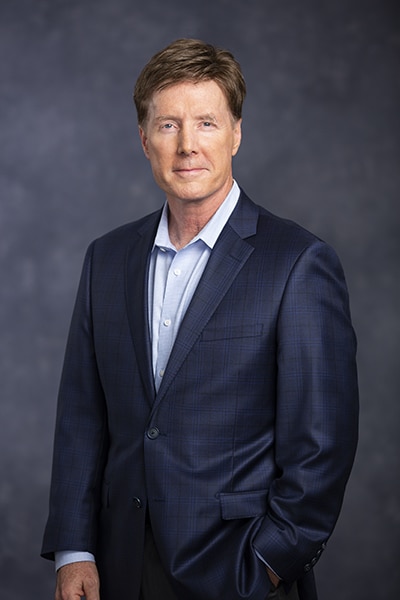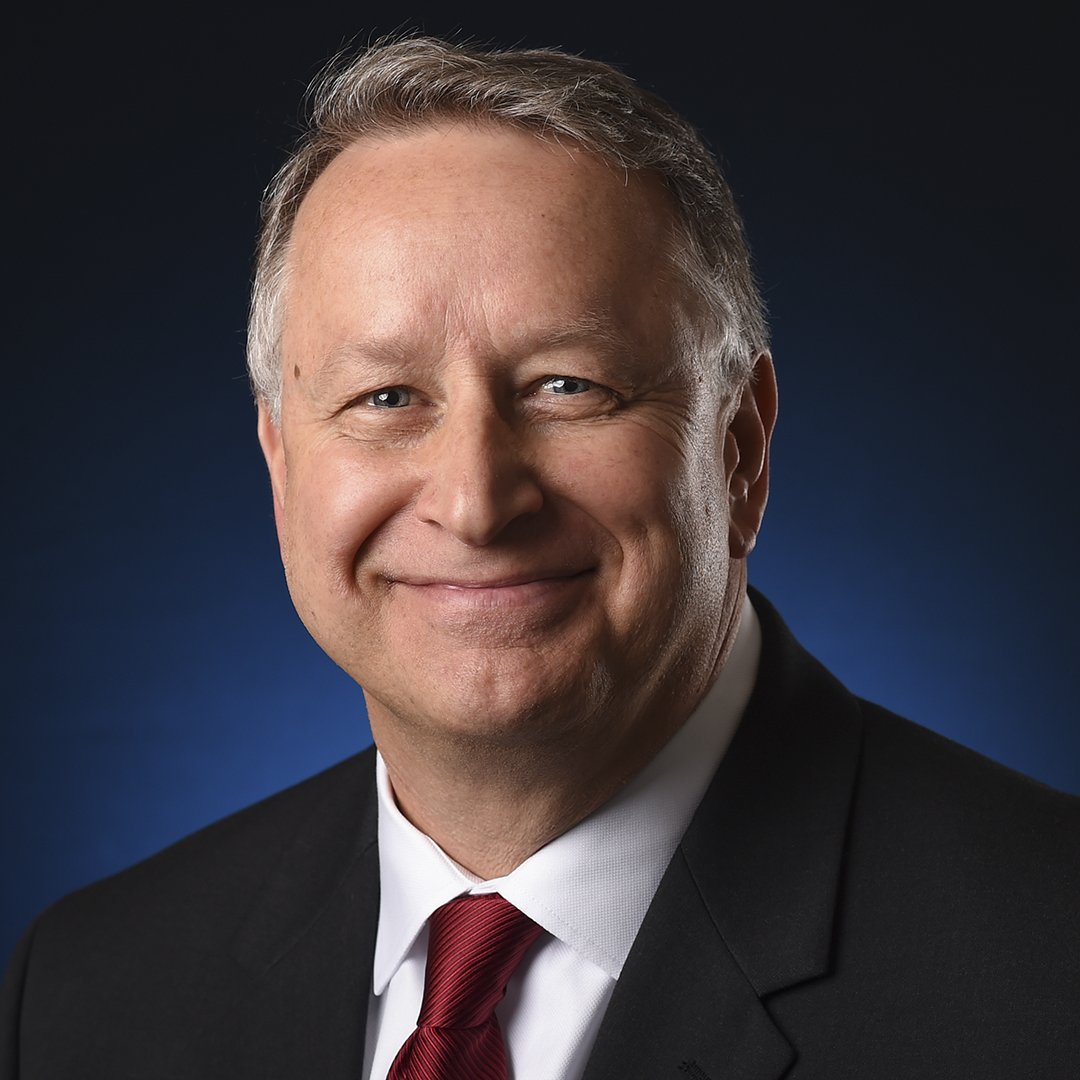There’s a remarkable parallel that runs between the personal and professional life of the chief compliance officer at CHOC. Lynn Grieves didn’t set out to find a role in healthcare. He moved from public accounting and eventually found his way into the healthcare space both in compliance and internal audit, with a brief role on the operational side. It just, sort of, happened.
It’s the same exact phrase he uses when describing the adoption of his now eight-year-old son, Jaden. There may not have been any grand design in the CCO’s own planning, but both Grieves and his son are found right where they belong.

Grieves’s tenure with CHOC was preceded by helming the CCO position and internal audit function at MemorialCare Health System for two decades. His transition from internal audit to the compliance side included one of the more difficult periods of Grieves’s career—an interim role where he was tasked with integrating a competing health system, a Catholic hospital that was a half-mile away.
“My job was essentially to lead the project team in closing down the Catholic hospital and integrate the workforce, medical staff, and operations into our health system,” Grieves says. “We did it on budget and on time, but my goodness, it was a memorable year of my life.” The integration proved particularly challenging because Grieves was trying to merge church and state, so to speak. Bringing two long-term competing organizations together with dramatically different cultures and senior leadership management styles, one gets the feeling Grieves spent as much time playing referee as he did an operational officer. When it was over, he was grateful to make the leap full-time back into compliance.
Since coming to CHOC in 2009, Grieves has had the opportunity to aid several modernization efforts both to continue the cutting-edge efforts to find better ways to serve its patient population and to align with constantly changing privacy standards in the state of California.
The COVID-19 pandemic required Grieves and his team to aid the organization’s telehealth efforts at a rapid rate. “We’ve been doing telehealth for many years, but not in the traditional sense,” the CCO explains. CHOC has a presence in many hospitals in its four-county area and has one of the largest pediatric transport operations in the country conducting approximately 4,500 transports per year. Many of these patient transports involve critically ill children who require a specialized transport team equipped with telehealth equipment, so specialists at CHOC can conduct telehealth encounters on the spot.
“COVID has ramped up our more traditional telehealth efforts considerably,” Grieves says. “There are so many legal technical aspects that accompany this, from getting consent for the telehealth visits, to ensuring provider credentialing, to our international efforts so our specialists are able to relay their expertise all over the world.” CHOC is also working on expanding its relationships with nearby schools in an effort, Grieves says, to “go to where the kids are.”
“We’re the only organization in our area with mental health inpatient treatment available for children younger than twelve. It’s been full since we opened it.”
Grieves also says that there are a number of legal obstacles to tackle when it comes to mental health treatment for its young patients. The 21st Century Cures Act was designed with the intention of getting patients information about their health as quickly and efficiently as possible, but when it comes to mental health and a pediatric population, that can be a difficult proposition. “Some of this information is not necessarily appropriate to share with the patient or legal guardian during treatment; these may be notes by our physicians where it would make the most sense to have available after their treatment,” Grieves says.
Patient consent laws for children ages twelve and younger differ wildly for patients seeking treatment from twelve to eighteen years of age. Creating an accessible portal with the information of minors requires adherence to myriad privacy regulations, both state and federal.
CHOC’s Cherese Mari Laulhere Mental Health Inpatient Center is a point of pride for Grieves. “We’re the only organization in our area with mental health inpatient treatment available for children younger than twelve,” the CCO says. “It’s been full since we opened it.”
Grieves says the design of the facility promotes a healing, compassionate environment, while maintaining the highest safety standards. “It’s not cold, it’s not scary, it’s not isolated. It’s just an amazing place that is so warm and inviting,” Grieves says. CHOC is also planting mental health providers in its more localized clinical locations, so mental health can be treated at the same location as primary care.
Grieves may not have planned to come to work for a children’s hospital, but he and his wife have been on the front lines of making children and family’s lives better as part of Safe Families for Children. The social services organization was created in order to keep struggling families together by enlisting volunteers who are willing to host children anywhere from hours to months while parents try to better their circumstances.
The Grieves family had temporarily hosted many children and seen them safely reenter their biological family homes prior to receiving a call that a baby born that day would be in need of temporary care. After several months, the child was given up by the mother and Grieves and his wife were asked by the mother to adopt him. “It just happened,” Grieves says. “We prayed about it. We had the means. And he’s been our son ever since.”
Jaden, now eight, knows he is adopted as leading childcare experts recommend. But even in the delivery of that news, it’s hard to imagine the youngest member of the Grieves family seeing anything different about his life. “We’re all adopted into God’s family,” Grieves says. “That’s exactly the way we tell him.”
With clients in all fifty states, Hooper, Lundy & Bookman, is the largest law firm in the country dedicated solely to representing healthcare providers and suppliers. Founded in 1987, the firm’s dedication to legal excellence and client satisfaction has been a hallmark of the practice for over thirty years.


